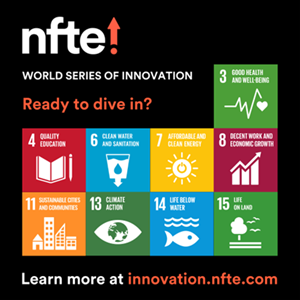WORTH II Partnership Project launch the second call for proposals
ROME, Oct. 25, 2022 (GLOBE NEWSWIRE) — The second online call for proposals within the WORTH II partnership project, Europe’s largest incubation programme dedicated to creatives has been launched. The programme is addressed to those who want to work together to develop innovative business ideas, SMEs and freelancers working in the lifestyle sectors, including footwear, leather and fur, textiles, furniture and home decoration, architecture and interior design, jewellery and accessories, were invited to come together for the second time and express their interest in the project. During the meeting they learned about the specifics of the call, the features of the incubation programme, the application process and how WORTH supports design solutions that help address the global challenges facing Europe.
The European Union’s COSME Programme funds the project for the Competitiveness of Enterprises and Small and Medium-sized Enterprises (SMEs).
As a result of the first call, 65 transnational partnerships were selected, with 149 participants from 28 EU-COSME countries. The selected projects were characterised by a broad sectoral representation: 45% textiles and clothing; 37% home decoration, interior design, furniture and architecture; 6% jewellery; 5% accessories; 5% leather and fur; 3% footwear. The projects were strongly linked to global challenges, including the priority challenges of the New European Bauhaus (beauty, sustainability, inclusion). The results obtained from the first call and the high participation rates allowed the programme to further consolidate and pave the way for future projects with promising short, medium, and long-term impacts both on the creative community around WORTH and, in particular, on the group of selected partnerships, who are the direct beneficiaries of the support programme.
It was with this proactive spirit that the second call for projects was conceived, dedicated to themes such as circular economy, a transition towards more sustainable production and consumption; advanced digitized manufacturing, digitized value chains and business models; social innovation and social inclusion; European cultural heritage preservation for social cohesion and well-being, reinvention of craftsmanship; shaping a new generation of innovators, entrepreneurs, professionals and citizens through innovative training and re-skilling tools; unique and disruptive design approaches; bolstering the EU single market, use of innovative materials, among other challenges that matter to communities.
Furthermore, the alignment with the following additional objectives is considered an asset and brings additional value to the project:
- the green and digital transition
- efficient use of energy and resources
- reduction of the carbon footprint
In addition to the partnerships already identified in the first call, a further 137 partnerships will be selected over the next two years and will be eligible for the following:
- The majority of projects will be awarded with a lump sum of 10,000€. A certain quota of outstanding selected projects will be granted with lump sums of 15.000€ and 20.000€
- A tailor-made coaching programme.
- Participation in two international events to present the products developed.
- Networking opportunities and provision of professional connections.
- Visibility through international media relations activities, advertising and social media marketing.
- Visibility of their professional profile on the WORTH gallery. A virtual networking space and marketplace.
The call for applications expires on 15 February and is specifically aimed at designers/creatives, manufacturers/artisans, technology developers/suppliers/
Partnerships must be transnational, meaning that members must come from at least 2 different EU or COSME associated countries or United Kingdom.
For more information:
LaPresse SpA Communication and Press Office Director
Barbara Sanicola – barbara.sanicola@lapresse.it
The photo is also available at Newscom, www.newscom.com, and via AP PhotoExpress.
A photo accompanying this announcement is available at https://www.globenewswire.com/
GlobeNewswire Distribution ID 8682009



